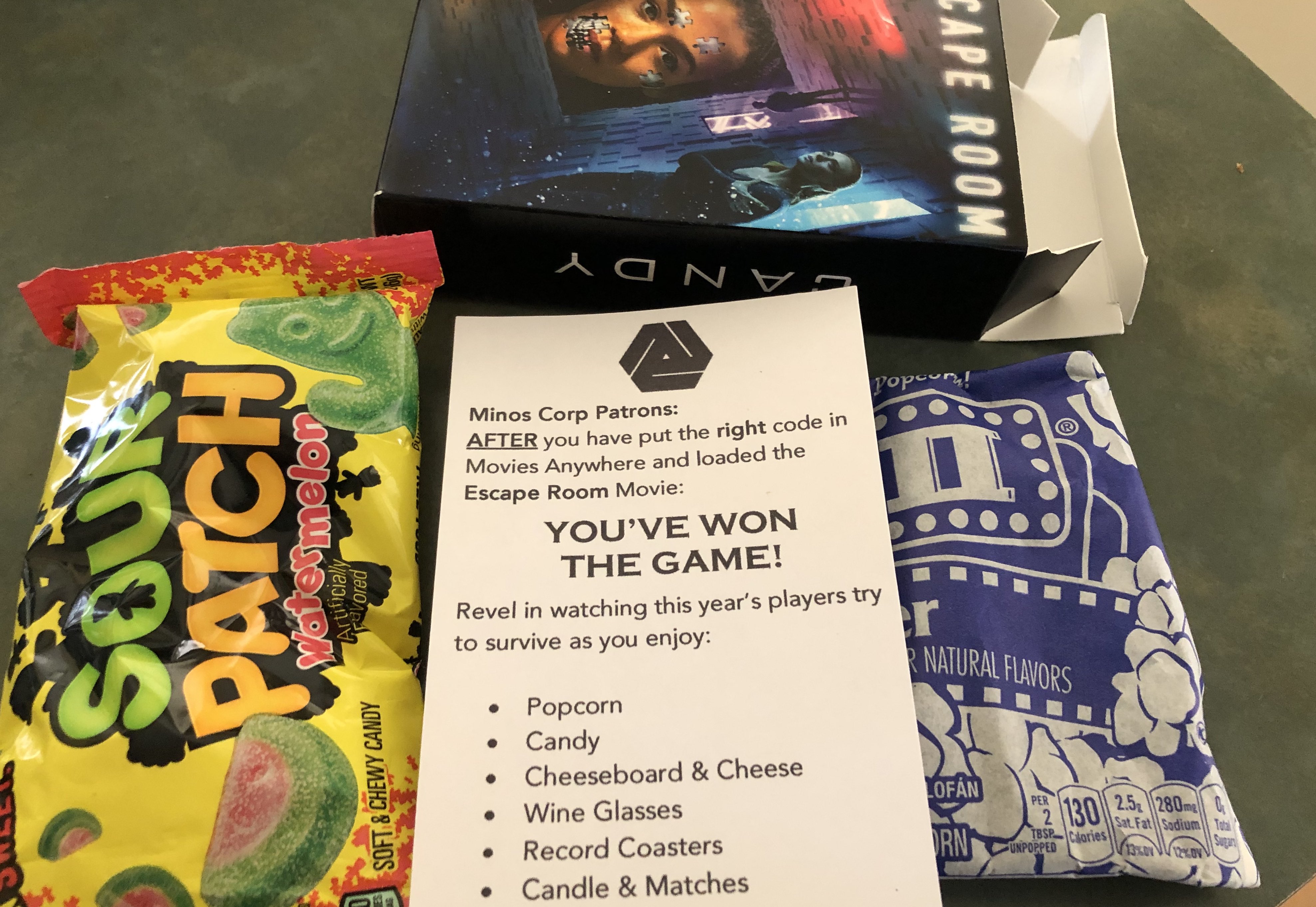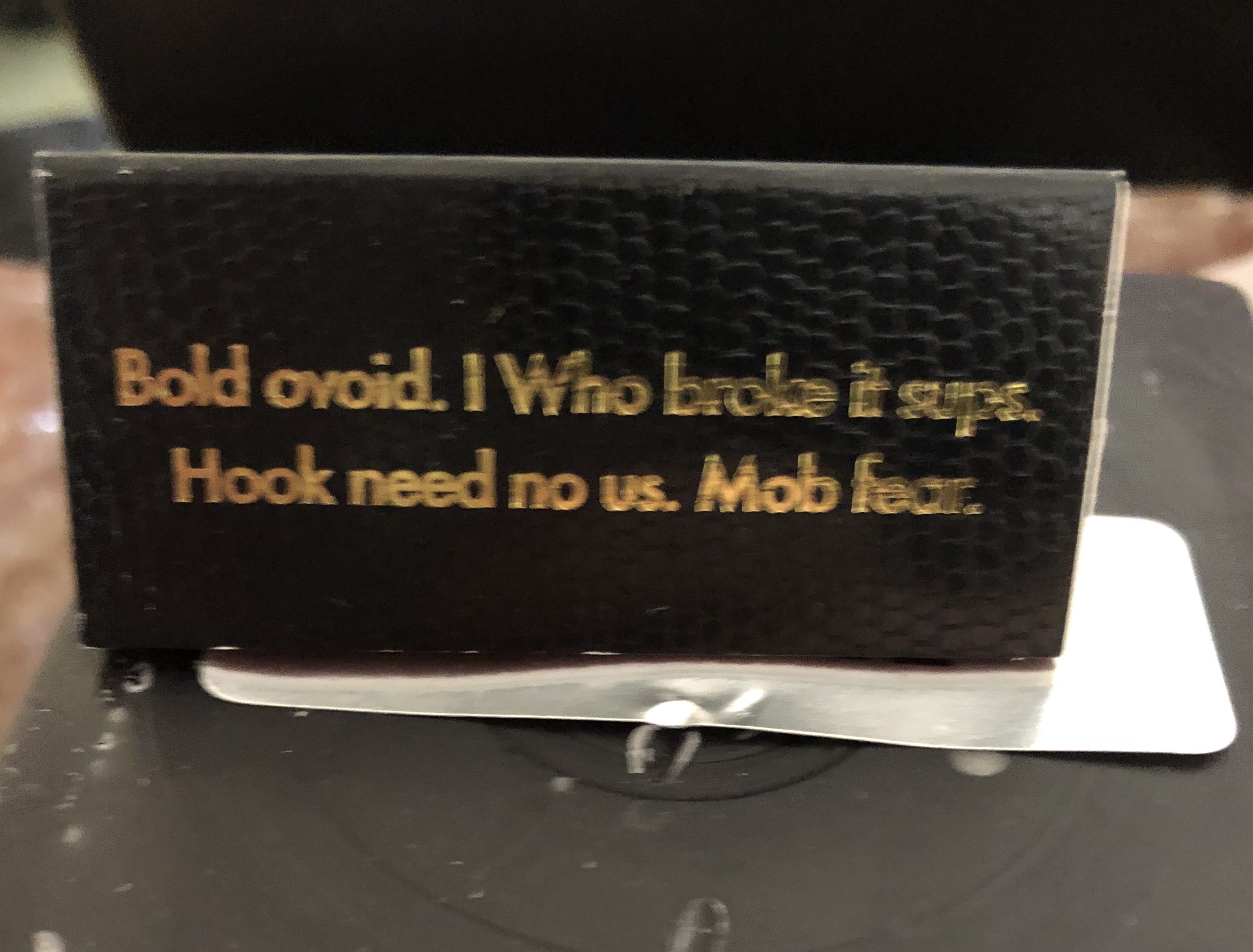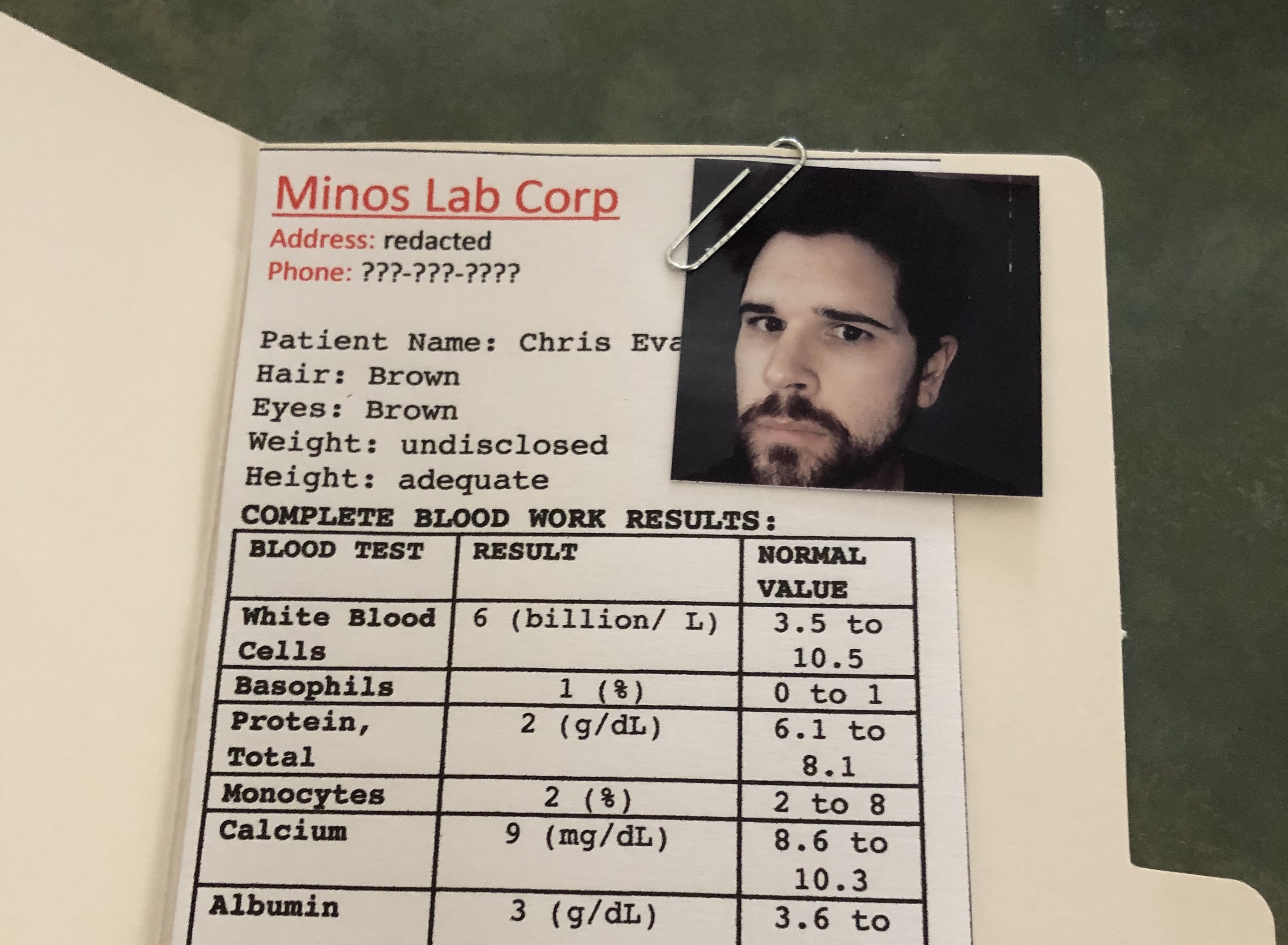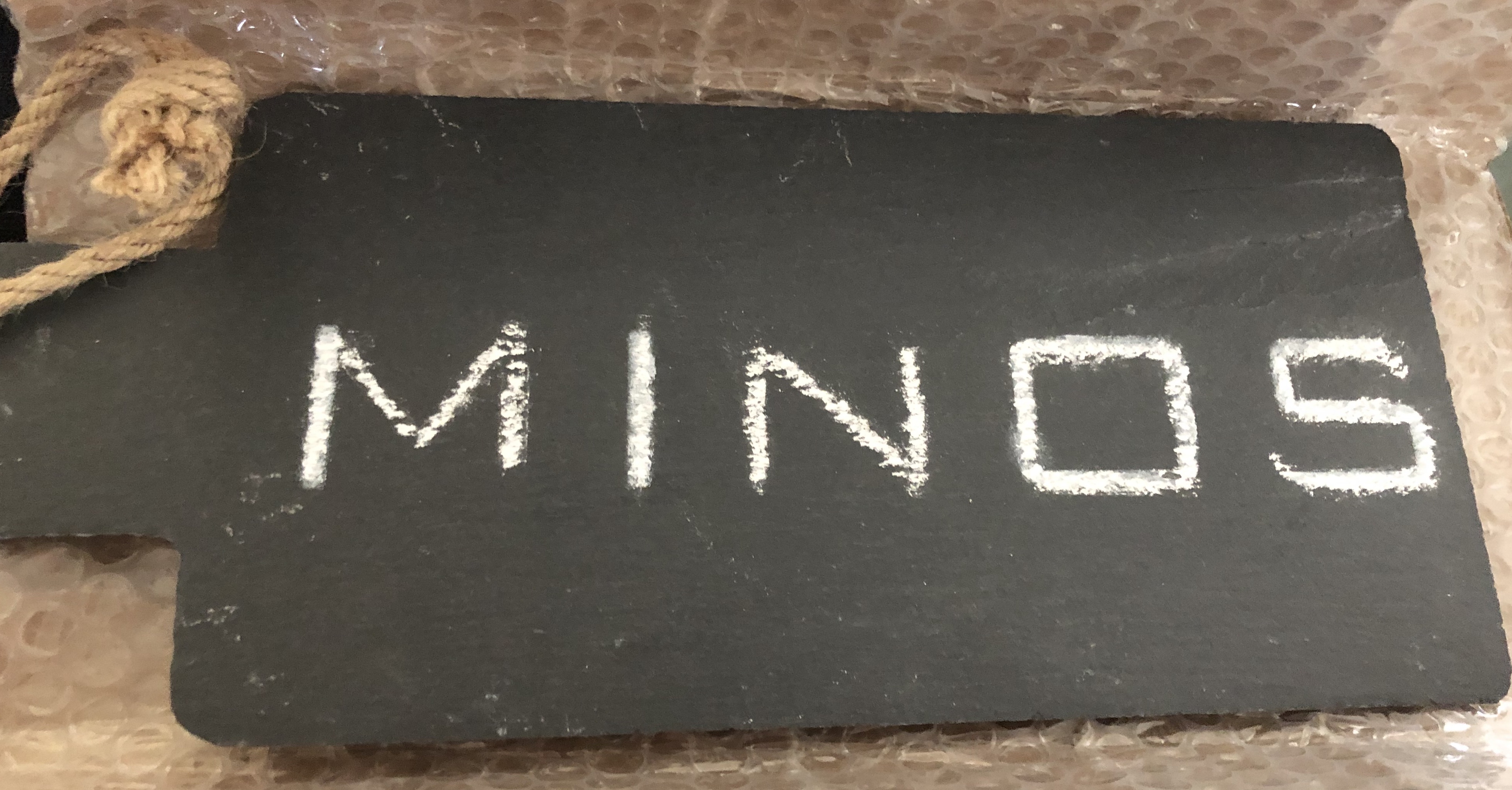New Blu-Ray Releases: 'Glass', 'The Kid Who Would Be King', 'Dragged Across Concrete', 'Replicas', 'The Witch'; Plus: The 'Escape Room' In A Box
Physical media will live forever! That's what I keep telling myself every night as I cry myself to sleep. For now, at least, physical media is sticking around, and that's where this column comes in – rounding up the Blu-ray releases you might want to check out, while Blu-rays still exist. This week, we have the confusing conclusion to M. Night Shyamalan's superhero trilogy; a charming Amblin-esque throwback from the director of Attack the Block; Keanu Reeves playing God; a crime-thriller guaranteed to piss some people off; and some wicked witchcraft. In addition to all that, her about the outrageously complicated "Escape Room in a Box" I was sent to promote the upcoming Blu-ray release of Escape Room. These are the new Blu-ray releases and their special features you should check out this week and beyond.
Glass
Glass is a curiosity on nearly every level. I remain a ride-or-die M. Night Shyamalan fan. I've stuck with him long after others gave up, and I was thrilled with his comeback starting with The Visit and followed by Split. When he announced he would make Glass, a film that tied together Split and his 2000 realistic superhero film Unbreakable, I was ecstatic. I view Unbreakable as Shyamalan's best film, and the idea of him returning to those characters with Glass was thrilling. And then I saw the movie! Look – I don't want to throw Shyamalan under the bus. I believe he had good intentions here, and I believe he gave this his all. But Glass does not work. In fact, it's a mess. But it's a fascinating mess. Here, Bruce Willis's super-human David Dunn ends up in a mental asylum with James McAvoy's Split character, Kevin Wendell Crumb, who is possessed with several personalities, including the monstrous The Beast. Also in the asylum: Elijah Price, aka Mr. Glass (Samuel L. Jackson), David's old friend/enemy. This premise is great, as is Shyamalan's idea of having most of the film take place in one location. But the script can never settle on what the hell it wants to be – this feels entirely like a sequel to Split that just happens to have Unbreakable characters in it. And yet, the filmmaker clearly wants this to connect to Unbreakable, but never manages to pull it off. McAvoy carries the film with his layered performance, and Jackson has fun in the second half of the movie. Willis, unfortunately, sleepwalks through it all, and is barely a presence. Glass disappoints, but I can only hope that now that M. Night has this out of his system, he can get back on track.
Special Features to Note:
There are a large amount of deleted scenes present here – 24 minutes worth, in fact. In his introduction to the deleted scenes included on the disc, M. Night Shyamalan reveals that the first cut of Glass was 3 hours and 20 minutes long, and they ultimately trimmed a full hour from the proceedings. Would that longer version play better? It's impossible to know for sure, but I have a feeling it would. Mostly because the deleted scenes here are quiet character moments that feel much more in line with Unbreakable. The filmmaker says he cut them for pacing, and I get that – he wanted Glass to move at a faster clip. But I can't help but wish he had stuck to his guns, and delivered something more introspective.
Beyond the deleted scenes, there are a slew of featurettes, most of which are very short – running between 2 and 10 minutes. The theme of these features is all the same: everyone loves M. Night. The cast, crew, producers and so on all line up to sing the director's praises, calling him a genius and commending the way he approaches his films. As for Shyamalan himself, he's on hand to to talk about how important it was to make this film. He goes so far as to call Unbreakable, Split and Glass all "one big movie", which I don't agree with at all. But hey, if that's how he feels, who am I to argue?
Special Features Include:
The Kid Who Would Be King
Attack the Block director Joe Cornish returns with the charming, warm-hearted The Kid Who Would Be King. Heavily inspired by the Amblin films of yore, The Kid Who Would Be King is essentially a straightforward retelling of the King Arthur legend, but in a modern-day setting, told through the eyes of kids. Cornish sets the film firmly in the here and now, in an England very much divided (the word "Brexit" never comes up, but it's impossible to deny its influence on the mood here). Young Alex (Louis Ashbourne Serkis) ends up pulling a sword from a stone, and wouldn't you know it, it's the legendary Excalibur! Now Alex is King! And he has to battle the evil sorceress Morgana, played with hammy glee by Rebecca Ferguson. Along the way, Alex knights his friends to help him, and teams up with the wizard Merlin (played sometimes by Patrick Stewart, and other times by Angus Imrie – Merlin ages backwards, you see). There's nothing in this plot that will set the world on fire, but that's part of the movie's charm. Cornish isn't trying to do anything more than tell an exciting story aimed at both the young and the young at heart. It's an old fashioned film, and I mean that in a good way.
Special Features to Note:
Through a series of mini-featurettes, Joe Cornish breaks-down his vision for the film, and his enthusiasm is infectious. It's clear Cornish had a ball making this, and that The Kid Who Would Be King was something of a dream project (now if only more people had gone to see it). Cornish says he came up with the idea when he was 13, inspired by E.T. and Excalibur. Cornish's idea was to make a kind-of remake of E.T., where instead of finding an alien, the young man character finds the legendary sword.
Cornish also adds that working with kids is enjoyable, because they're less socially inhibited than adult actors, which makes them more in the moment. He also talks about how there's never really been a movie with this many young actors engaged in so many action scenes. The young cast underwent two months worth of training to learn to fight.
Special Features Include:
Dragged Across Concrete
S. Craig Zahler is the filmmaking equivalent of someone being intentionally rude to you online, and then asking, "What's the matter, are you triggered?" if you complain. And yet...he's not without his talents. People seem to love his work on films like Bone Tomahawk and Brawl in Cell Block 99. I'm not one of them – I don't care for those films, and I loathe his script for Puppet Master: The Littlest Reich. But I can't deny the power of Zahler's nasty new film Dragged Across Concrete. To be clear, the filmmaker is out to push buttons here, and piss people off. If he wasn't, he wouldn't have cast the extremely toxic Mel Gibson in the lead. This is a movie meant to anger people – and that's part of its strengths. Dragged Across Concrete is the story of two racist, corrupt cops, played by Gibson and Vince Vaughn, who decide to rip-off some thieves in order to score a big payday. Things don't go accordingly to plan, since the thieves are a group of murderous sadists. In the middle of all of this is the recently paroled Henry (Tory Kittles), who just wants to make enough money to help his sick mother. None of these characters are particularly likable, and again – that's the point. Zahler doesn't want us to sympathize with these characters. He just wants to present them as they are – terrible people. This is definitely not everyone's cup of tea, especially with its 159 minute runtime. But Dragged Across Concrete worked for me. It's nihilistic and brutal, but I couldn't look away.
Special Features to Note:
Over the course of a 40+ minute behind-the-scenes featurette, S. Craig Zahler and his cast talk about how extreme and edgy this movie is. I know that sounds pretentious, but i never comes across that way. The message here is that Hollywood is very averse to taking on risky projects, and risky things are all Zahler wants to do. He's been lucky enough to find a kindred spirit in producer Dallas Sonnier of Cinestate, who has let Zahler do pretty much whatever the hell he wants.
"I don't think my movies are important," Zahler says. "I just want them to be good." The filmmaker goes on to add that he wishes movies were more morally ambiguous, and didn't spoon feed the audience. While I may not be the biggest fan of Zahler's work, I can't disagree with that assessment.
Special Features Include:
Replicas
Replicas! It sure is a movie! I think! This hodgepodge of sci-fi tropes is almost impressive in how preposterous it is. The plot involves scientist Keanu Reeves cloning his family after they're killed in a car accident, and sure, that could work as a story. But the movie has no interest in exploring the moral questions at stake here. There's even a Sophie's Choice-like set-up where Reeves is forced to leave one of his kids dead. That's pretty dark, and could lend itself to a complex story. But Replicas has no use for that, and quickly moves on so it can get to scenes involving car chases and a robot that looks so painfully fake that it might as well not exist at all. I should add that this robot ends up with Reeves's personality inside it, so we get to hear Keanu's voice coming out of a robot. And then at the end of the film, the robot is wearing a suit and tie. That alone is worth the price of admission. But why did this movie feel the need to have both robots and cloning? I really don't know, and I don't want to know. Sometimes it's best to just accept the mystery.
Special Features to Note:
I'm always fascinated when genuinely great movies have bare-bones behind-the-scenes featurettes, and then things like Replicas end up with nearly hour-long documentaries. But that's the world we live in. The world where Replicas gets special treatment. It's clear that everyone working on this film really believed in it, especially Reeves, who also produced. The John Wick actor reveals he spent years developing this film with Stephen Hamel (who has a story credit).
Director Jeffrey Nachmanoff calls Replicas a "genre defying movie", which it really isn't, but Nachmanoff stresses the film is a combination of sci-fi, family drama, and even dark comedy. While I can't call Replicas a good movie, it's hard to dislike it, simply because this featurette reveals that everyone here was really trying to make something ambitious. They just didn't have the budget to pull it off.
Special Features Include:
The Witch 4K
Robert Eggers's dark, brooding 2015 horror masterpiece has only gotten better with age. Some casual horror fans don't take kindly to the slow, dread-inducing mood here. They're prefer jump-scares. But that's not what The Witch is. Instead, it's an exploration of one family slowly coming unhinged. And yes, it's also about witches. Eggers is telling a puritanical take on The Shining, with an isolated family unit being torn-apart by supernatural forces, culminating in tragedy. But whereas The Shining ultimately lets (most) of its "good" characters escape the evil, The Witch has much darker things in store, culminating in an ending that still has the power to thrill and chill. And yes, Black Philip the goat still rules.
Special Features to Note:
The features here are ported over from the previous release, the best being "The Witch: A Primal Folktale", which delves into the themes of the film, as well as production elements like cast, costumes, visual aesthetic, and more. And of course, there's a lot of talk about Charlie, the goat that Black Phillip. He may look like a born star on screen, but Charlie was a big jerk on set, and Eggers and company had a hell of a time getting him to do what they needed.
The real "special feature" here, though, is the new 4K transfer. Cinematographer Jarin Blaschke shot most of the film using natural light, which results in a lot of darkness and shadows. That darkness looked fine on the initial Blu-ray release, but here, it's crisp, clear, and softer. It makes for an altogether more wonderful viewing experience. Even though I've seen this film several times, by watching it on 4k, I was able to pick up on small things here and there in certain frames that I had never noticed before. If you're a fan of this movie, you need this new release.
Special Features Include:
Escape Room in a Box
Escape Room, the surprisingly fun horror movie that makes great use of its set design, is now available on digital, and will hit Blu-ray & DVD on April 23. In anticipation of the Blu-ray release, the folks at Sony Pictures sent me an Escape Room in a Box. Sounds fun, right? That's what I thought, too. And then I got to work on this created. Created by game makers Wild Optimists, this was shockingly complicated to dig into. Luckily, it came with a "hint book" to help me along the way. Is it cheating to look at all the hints? Maybe. Also cheating: giving up on certain things, and ripping them open...which I also did. In short, if you'r ever trapped inside a killer escape room, you probably don't want me in there with you, because I'll be looking for ways to cheat, and end up getting us all murdered.
In the end, I got everything open, at which point I found some microwave popcorn, Sour Patch candy, and more. I was also informed that the tracking number on the box Sony sent to me was actually a code to download the movie digitally. But here's the thing: I had already thrown out that box. So I had to go dig through the trash. This is how I spend my free time, folks. The glamorous life of a film critic.
Blow, check out some images of the many parts of the Escape Room in a Box.
If you want to know what an #EscapeRoom in a box looks like, here are some (bad) pics of one I was sent for #EscapeRoomDigital2019. It was complicate to solve, so I may have cheated. Also, I found out that I threw out one of the clues I needed, so I had to dig through the trash. pic.twitter.com/Xd2NxRyNJ2
— Chris Evangelista (@cevangelista413) April 11, 2019






